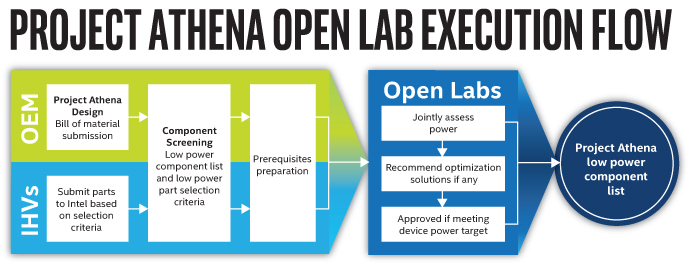Ultrabooks have always been touted as the laptops you need to do work on the go and round the clock. But despite lofty battery life ratings that are promoted, they never really get reflected as such in real-world usage. This looks set to change with Intel’s Project Athena.
But what exactly is Project Athena? To put it very simply, it’s a new label that gets attached to laptops when they meet certain specification requirements. This is similar to the thickness restriction that laptops have to meet before they can be sold as Ultrabooks. But for Project Athena, the main focus seems to be on battery life.
While Ultrabooks also had a minimum battery life requirement, Project Athena pushes this even further. To earn the Project Athena certification, a laptop will have to be able to last at least nine hours of real-world use. Engadget reports that this will include active internet activity, and programs running in the background as you work.

To help manufacturers achieve this is the Project Athena Open Labs which will be located in the US, Taiwan, and China. They will open in June, and any brand will be able to bring their components in for validation.
In fact, Intel will even help manufacturers fine-tune their components so that they achieve the performance required for the certification. The chipmaker also said that there will be at least 10 Project Athena laptops in the second half of 2019. But the company will likely share more at the end of the month, during Computex.
(Source: Engadget. Image: Intel)
Follow us on Instagram, Facebook, Twitter or Telegram for more updates and breaking news.


